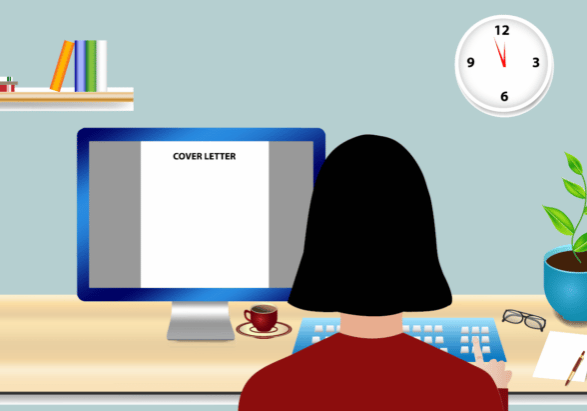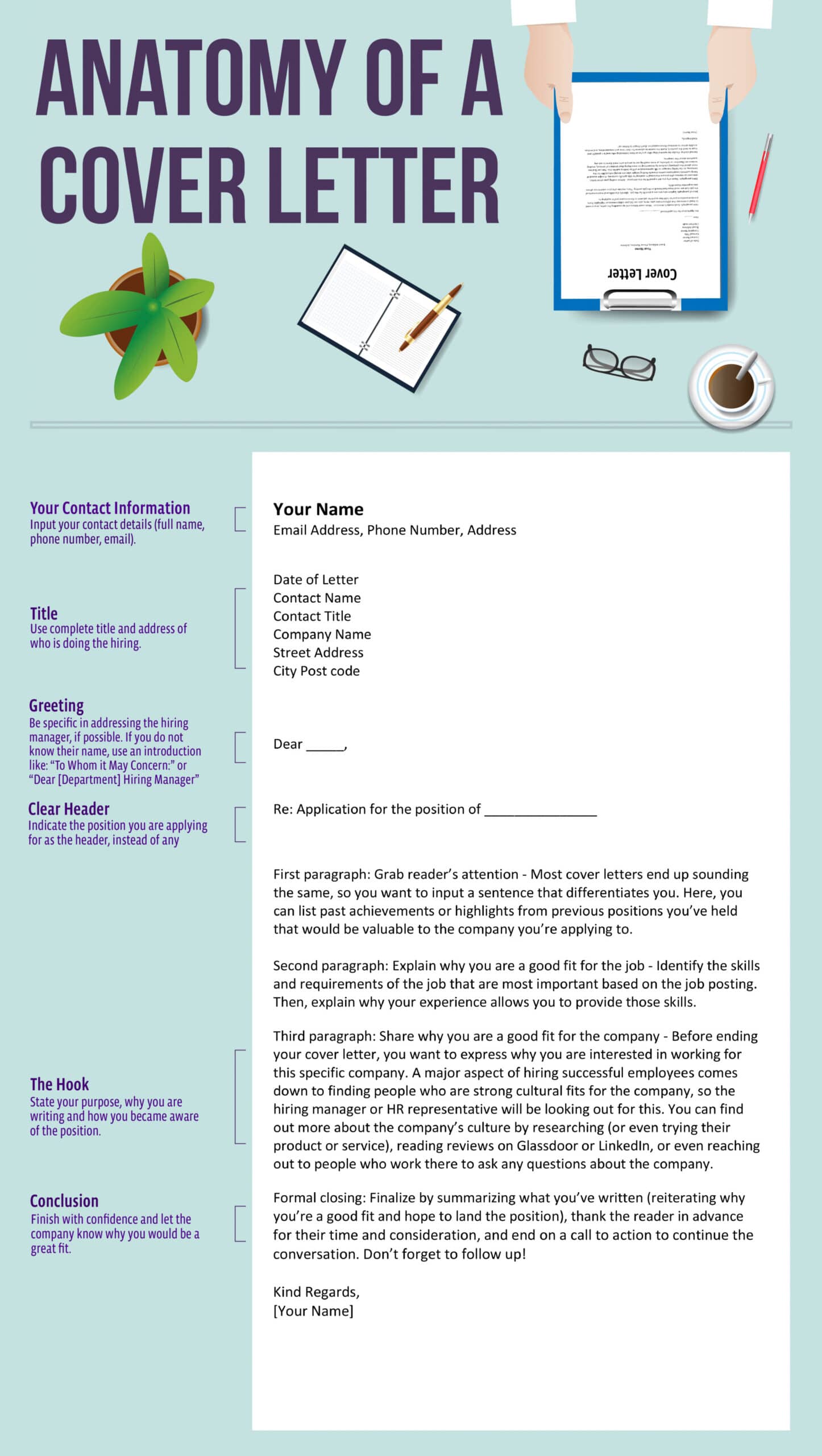How to Write a Cover Letter? The Perfect Cover-Letter Template For You!
Updated: January 8, 2024
Published: November 10, 2021

Ready to hit the job market and you don’t know how to write a cover-letter that lands you your dream job? While not all job postings will list a cover letter as a requirement, submitting a cover letter can always help you to better position yourself against the competition. That’s why it’s useful to have a cover letter template ready to go that you can adjust based on the role you’re applying to.
Here, we will share everything you need to know about what to include and not to include in a cover letter. You’ll also learn how to create your very own cover letter template that is adjustable based on need.
What is a Cover Letter?
A cover letter is a single-page, formally-written document that can be submitted as part of a job application along with a resume or CV. The main purpose of a cover letter is to provide your prospective future employer with more information about your professional background and reasons why you’d be a good fit for the job.
Why is a Cover Letter Important?
Although a cover letter typically follows a certain format and flow (which makes it possible to create a cover letter template), they are important because they provide the space in which you can share more information about yourself with the person (or people) reviewing your job application.
For most job applications, many other applicants are competing for the same spot, so your cover letter can make all the difference to get you the job. The best cover letters grab the reader’s attention and lead them to set up an interview. The worst cover letters get thrown in the “no” pile and are forgotten about.
What Should You Include in a Cover Letter?
Since a cover letter is submitted in addition to your resume, you don’t want to simply regurgitate everything already explained in your resume. Of course, there will be some overlap because your resume shares your work experience and education. Still, in a cover letter, you get to specify how your work experience is well-suited for the available position.
Additionally, you get to share the skills you possess that meet the job requirements (these skills are typically listed within the job posting).
A cover letter includes:
- How your work experience aligns with the job responsibilities
- How your skills match the job requirements
- Why you want to work for the organization and what you can contribute
How Long Should a Cover Letter Be?
The cover-letter format is important. A cover letter should be no longer than one page. You can divide your cover letter into three or four paragraphs.
It’s recommended to write your cover letter in whichever word processing tool you prefer, and then export it and send it as a PDF. When you send your cover letter as a PDF, it’s less likely to be edited or changed within the process of being opened by whoever may need to read it.
What Not to Include
Now that you know what should be included in your cover letter template and future cover letters, let’s review what you should not include.
Do not make any mention of:
- Salary requirements
- Personal information (birthday, address, ethnicity, etc.)
- Questions (leave questions for the interview)
- Information that is on your resume
- Photos
The Bottom Line
Having a proper cover letter template ready to use when you come across a job posting that you wish to apply for will save you time and stress. A cover letter can be submitted for any type of job as it is used to further explain why you would be a good fit for both the role and the hiring company.
Remember to be concise, polite, formal, and honest in your cover letter, as you will likely have to discuss the information when it’s time for an interview. By creating a well-written cover letter, you can increase your chances of landing the job.

